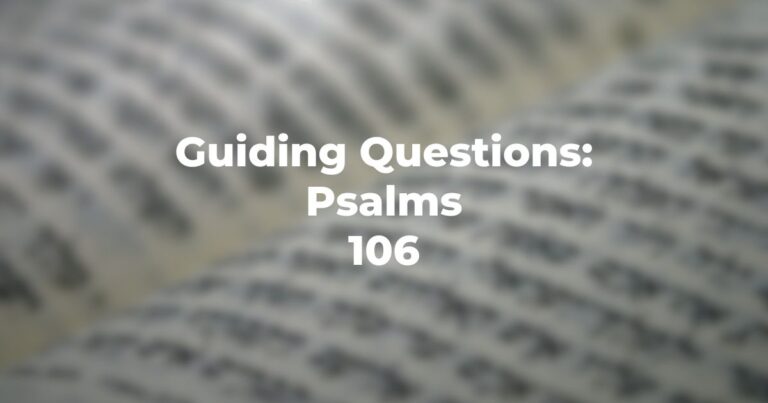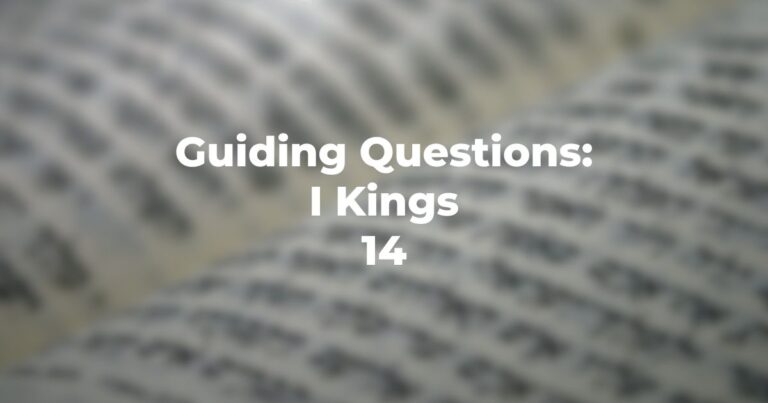- Psalms 119:1-8 appear to be an introduction, in which the writer utters what sentiments?
- What does the author request in Psalms 119:9-12 and how does he seek to fulfill the request in Psalms 119:13-16?
- When, in Psalms 119:19 the phrase “I am a stranger in the land”appears; does this mean that every human being is on this earth only for a period of time or is there some other meaning to the phrase?
- The mood seems to change in Psalms 119:25-28 and the affirmative requests now yield to a concern with what?
- Are there any new thoughts in Psalms 119:41-48?
- What is the word that God is asked to “remember”?
- Do the sentiments expressed in Psalms 119:65-72 (the eight verses with the letter tet) and those in Psalms 119:73-80 (eight verses with the letter yud) provide any new thoughts of the composer?
- In Psalms 119:97 the translation renders the word “toratekha” as “Your teaching”; might it be rendered, simply, as Your TorahRefers to the first five books of the Hebrew Bible, the Tanakh, also called the Five Books of Moses, Pentateuch or the Hebrew equivalent, Humash. This is also called the Written Torah. The term may also refer to teachings that expound on Jewish tradition. Read more? Or do both really assert the same thing?
- In Psalms 119:99 the Hebrew phrase is translated “I have gained more insight than all my teachers”; the common usage is to render it “I have become educated by virtue of having learned from everyone” — which translation would you prefer?
- In Psalms 119:107 there is reference to affliction; is there any indication as to what that might be and how does it refer to Psalms 119:109 — “my soul is constantly in danger”?
- What is the plea of the author in Psalms 119:121-128?
- Psalms 119:136 refers to bitter tears — for what “tragedy”?
- From Psalms 119:141 would the author appear to be a young man? (The translation renders it “I am belittled and despised”), but the Hebrew is actually “I am young and looked down upon”?
- Do Psalms 119:143 et seq. indicate serious “problems” for the composer; especially Psalms 119:153-157?
- In Psalms 119:160 of all God’s “words” which are most prominent?
- With the final refrain, the eight passages with the letter taf, how does the composer conclude the Psalm?
- Is it conceivable that this would have been a tefillah for the community at any time? If not, what would be its purpose?
Author
-

Exploring Judaism is the digital home for Conservative/Masorti Judaism, embracing the beauty and complexity of Judaism, and our personal search for meaning, learning, and connecting. Our goal is to create content based on three core framing: Meaning-Making (Why?), Practical Living (How?), and Explainers (What?).
View all posts




